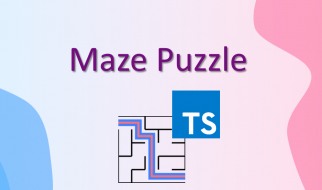
What works when you teach reading? These 18 teaching practices have been shown effective by reading researchers. Some are for beginning readers, some for older readers, and some for readers of all ages.
1. Focus on meaning
Comprehension is the number one, most important goal of reading!
2. Read aloud
It?s amazing how much students learn as they listen to someone read, especially with texts just beyond their abilities.
3. Do everything you can to get kids to read
Like anything else, the best way to master reading is by practicing it. Provide silent reading time every day and access to fascinating, relevant, kid-friendly materials.
4. Give beginning readers lots of opportunities to interact with print
Give them reading time outside of silent reading time to keep them practicing reading all day long.
5. Provide opportunities for success
Keep it low-risk so kids aren?t afraid to stretch themselves. Instead of asking them for the ?right? answer, ask them for a thoughtful answer. Remember, we?re focusing on helping kids build meaning, not on correctness.
6. Teach phonics ? but don?t overdo it
Little ones benefit from phonics instruction, but phonics is one of many paths to comprehension. Balance phonics with other important early-reading activities.
7. Provide a rich array of print choices
The books that accompany basal or core reading programs aren?t enough. Make sure readers have poetry, magazines, newspapers, tradebooks, and other real-world options too.
8. Give kids choice in what they read
Do you read for pleasure? If so do you choose your own texts, or do you let someone else choose them? If we want kids to have a lifelong love of reading, we need to give them practice at choosing texts that interest them ? just as adults do!
9. Balance challenging texts with easier ones
If every text is hard, then reading becomes a slog, and for struggling readers slog = disengagement. Close reading and rereading can be an adventure, not a slog.
10. Teach reading as thinking
Reading isn?t magic. Skillful adult readers think as they read and use specific cognitive strategies to boost their comprehension. Teach kids to do the same.
11. Model your own reading
Kids are always watching adults closely to find out what they do. So it makes good sense to model a love of books and authors as well as the thinking moves that happen during proficient reading.
12. Name and teach reading strategies directly
Don?t keep reading strategies a secret! Be sure to explicitly label strategies as you model them.
13. Support readers before, during, and after reading
Frontload comprehension strategies before reading, monitor students? understanding during reading, then provide time for students to savor their reading and connect it to other experiences.
14. Demonstrate the usefulness of reading
Show students how reading helps them learn and solve problems.
15. Give kids daily opportunities to talk about their reading
Do you share favorite books with friends in the teachers lounge? Or with friends outside of school? Give students the chance to share favorites with one another to build a sense of community around reading.
16. Ditch the workbooks and skill sheets
No one enjoys these, and if we?re honest with ourselves, they don?t do much good. Actually, they may do harm because they displace precious minutes in the classroom. Replace them with authentic activities such as book journaling, book talks, book groups, or simply more reading time.
17. Link reading to writing
Writing provides massive insight into reading, the role of the author in a text, phonics, genre, and so much more.
18. Match reading to classroom practice
Teachers are not technicians but professionals sensitive to the development of their readers and what they need to grow. So placing less or no emphasis on mechanized assessments and more on one-to-one qualitative assessment is only natural.
Details on these powerful practices can be found in:
Best Practice, Fourth Edition by Steven Zemelman, Harvey ?Smokey? Daniels, and Arthur Hyde (Heinemann, 2012).
Comprehension & Collaboration, Revised Edition, by Stephanie Harvey and Harvey ?Smokey? Daniels (Heinemann, 2015).
Comprehension Going Forward, edited by Harvey ?Smokey? Daniels (Heinemann, 2011).

